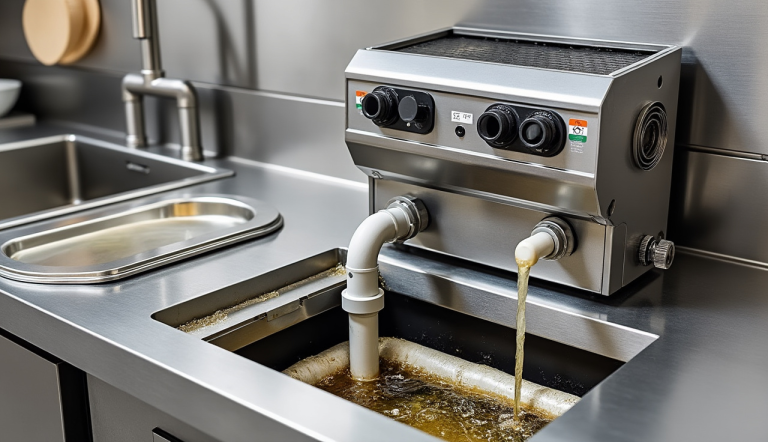Optimizing the Frequency of Septic Tank Pumping for Different Household Sizes: Essential Insights for Homeowners
Understanding how often to pump your septic tank is key. This can change based on how big your household is. Pumping your septic tank keeps your system healthy and working well. If you wait too long, it can cause serious problems.
Key Takeaways
- The size of your household affects when you should pump your septic tank.
- Larger families create more waste and need more frequent pumping.
- Regular inspections help catch issues before they become serious.
- Different tank sizes also play a role in pumping frequency.
- Keeping your system clean saves you money in the long run.
- Ensure compliance with local regulations regarding septic systems. Learn more about local septic system regulations here.
The Basics of Septic Systems
A septic system is made up of a tank and a drain field. The tank collects waste, and the drain field allows the liquid to soak into the ground. Over time, solids build up in the tank. If you do not pump it out, this can lead to clogs and backups. That’s why understanding how often to pump is so important.
Factors That Impact Pumping Frequency
Different things can change how often you need to pump your septic tank. These include:
Household Size
More people mean more waste. A single person or a couple may only need to pump once every three to five years. But a family of four or more might need to pump every one to two years.
Tank Size
The size of your septic tank matters. Larger tanks can hold more waste, so they don’t need to be pumped as often. Smaller tanks fill up quicker.
Waste Generation
Different homes produce different amounts of waste. If your household uses a lot of water, you will need to pump more often. This can happen if you have frequent guests or if you run your washing machine and dishwasher at the same time.
System Type
There are different types of septic systems. Some systems are designed to handle more waste than others. If you have a standard system, the pumping schedule might be different than if you have an advanced treatment system.
Table 1: Septic Tank Pumping Frequency Based on Household Size and Tank Size
| Household Size | 500 Gallon Tank | 1,000 Gallon Tank | 1,500 Gallon Tank |
|---|---|---|---|
| One to Two People | 3-5 years | 3-5 years | 4-6 years |
| Three to Four People | 2-3 years | 2-3 years | 3-4 years |
| Five or More People | 1-2 years | 1-2 years | 2-3 years |
Signs Your Septic Tank Needs Pumping
Sometimes it is hard to know when your septic tank is full. Here are some signs to look for:
Slow Drains
If your sinks, toilets, or tubs drain slowly, your septic tank might be full. This is one of the first signs to watch for.
Bad Smells
If you smell sewage around your yard, this can mean your tank is overflowing. A full tank can cause waste to back up into your home, creating an unpleasant odor.
Green Grass
If you see a patch of unusually green grass over your drain field, this could mean waste is leaking out. While green grass is usually good, in this case, it might mean trouble.
Pooling Water
If you see water pooling in your yard, especially near the drain field, it can indicate a problem. It might mean the system is failing.
Additional Factors to Consider
- Seasonal Use: Seasonal homes may require different pumping schedules than year-round residences.
- Water Usage Habits: Heavy water usage, such as frequent laundry, can increase pumping frequency.
- Home Additions: Adding bathrooms or increasing household size will necessitate more frequent pumping.
Recommended Pumping Schedule by Household Size
Here is a general guide for how often to pump based on the number of people in your home:
One to Two People
A household with one or two people should plan to pump their septic tank every three to five years. This is because they generate less waste, and the tank does not fill up quickly.
Three to Four People
For a household of three to four people, you should pump every two to three years. The amount of waste increases. Therefore, you need to keep an eye on the tank more closely.
Five or More People
For homes with five or more people, you should pump every one to two years. Larger families produce more waste and fill up the tank faster.
The Importance of Regular Inspections
Regular inspections are just as important as pumping. Inspections can help you spot problems before they become big issues. A good rule is to have your septic system inspected every year.
What Happens During an Inspection?
When you have an inspection, a technician will check many parts of your system. They will look at the tank, pump, and drain field. They can identify any clogs or issues early.
Catching Issues Early
If you find problems early, you can often fix them without needing major repairs. This can save you money and keep your system running well.
How Tank Size Matters
The size of your septic tank can change how often you need to pump. Here’s a breakdown of standard tank sizes:
500 Gallon Tanks
A 500-gallon tank is often used for smaller homes. A two-person household should pump every three to five years, while a family of four should pump every two years.
1,000 Gallon Tanks
A 1,000-gallon tank is common for average-sized families. Households of three to four should pump every two to three years, while families of five should pump every one to two years.
1,500 Gallon Tanks
Larger homes may have a 1,500-gallon tank. These can go longer between pumps, with larger families needing to pump every two years or so.
Table 2: Cost of Pumping Based on Tank Size
| Tank Size | Average Cost |
|---|---|
| 500 Gallons | $200 – $300 |
| 1,000 Gallons | $250 – $400 |
| 1,500 Gallons | $300 – $500 |
How to Extend the Life of Your Septic System
Taking care of your septic system can help it last longer. Here are some easy tips:
Use Water Wisely
Don’t overload your washing machine or dishwasher. Spread out laundry loads and try to use water-saving fixtures.
Don’t Flush Non-Biodegradable Items
Only flush toilet paper and human waste. Other items, like wipes and paper towels, can clog your system.
Maintain Your Drain Field
Keep heavy vehicles and equipment off your drain field to avoid compacting the soil.
Avoid Chemical Drain Cleaners
Using chemical cleaners can harm your septic system. Stick to natural cleaners whenever possible.
Understanding Septic System Components
Knowing the parts of your septic system can help you care for it better.
The Septic Tank
This is where waste is collected. It allows solids to settle at the bottom, while liquids flow into the drain field.
The Drain Field
This area allows water to filter back into the ground. Proper drainage is vital for system health.
The Distribution Box
This part helps distribute the waste evenly across the drain field.
The Cost of Pumping
Pumping your septic tank does come with a cost. The price can vary based on where you live and the size of the tank. On average, pumping a septic tank can cost between 200 dollars and 500 dollars.
Budgeting for Pumping
Plan to set aside some money each year for pumping and inspections. This can help you avoid surprise expenses. Explore various septic services and their costs here.
The Role of Local Regulations
In Middletown, New York, there are specific rules about septic systems. Make sure you are following local laws and regulations. It’s important to keep your system up to code.
Finding a Reliable Service Provider
Choosing a good septic service is key. Look for a company with experience and good reviews.
Questions to Ask
When looking for a septic service, ask about their experience, fees, and what services they offer. A good provider will be happy to answer your questions.
Getting Estimates
Before you choose a service, get multiple estimates. This can help you find the best price and service.
When to Replace Your Septic System
Sometimes, pumping and repairs aren’t enough. If your system is old or has failed, you might need to replace it.
Signs You Need a New System
If you are constantly pumping your tank, have frequent clogs, or see pooling water, it might be time for a replacement.
Planning for a New System
Replacing a septic system can be expensive. Make sure to budget for this, and get multiple estimates.
Conclusion
Knowing how often to pump your septic tank is important. Your household size, tank size, and waste generation all play a role in how often you should pump. Regular inspections can help catch problems early. If you take care of your system, it will last longer and work better.
Keep in mind the signs that your tank might need pumping. Understanding your system and its needs can save you time and money in the long run.


